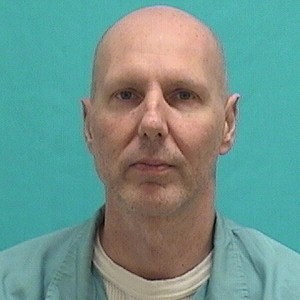On April 7th, 1990, Lee Bishop arrived at his daughter and son-in-law’s home in Winnetka, Illinois. Winnetka, a wealthy suburb of Chicago, seemed like a perfect place for Richard and Nancy Langert to buy their first home and start their family. It was a safe neighborhood with excellent schools. As he entered the home, however, he immediately knew something was wrong. Nancy’s purse was turned over and its contents scattered. Down the stairway to the basement, Mr. Bishop saw the dead body of his daughter lying in a pool of blood. Nearby was his son-in-law, who was also dead. This case would shock the safe community of Winnetka because of the brutality and the unlikely killer.
Nancy Ellen Bishop was born May 14th, 1964, in Winnetka. She was the youngest of three girls. Nancy’s sisters described her as fun with a great sense of humor. Although she excelled at the prestigious New Trier High School, Nancy ultimately wanted to be a wife and mother. In her early twenties, she met Richard Langert. Richard Alexander Langert was born in November of 1959. Nancy and Richard fell madly in love, marrying in 1987. Nancy’s family described Richard as tall, handsome, and an overall good guy. Nancy and Richard looked forward to starting a family. In early 1990, Nancy learned she was pregnant. “Nancy and Richard were just, you know, in their heyday. They loved it” (CBS News, 2016), said Nancy’s mother Joyce. Unfortunately, Richard and Nancy never got to realize their dream of becoming parents.

Richard Langert was found with one hand handcuffed and a single gunshot to the back of his head. Nancy had been shot three times and had used her own blood to write “BUR” on the hall. The writing, however, was first misconstrued as a heart and U, followed by an R. Police believed she was writing a message to her family as she died, expressing her love. A glass cuter had been used to enter the home.
Police described aspects of the crime appearing professional while other aspects indicated an inexperienced killer. There were no clues as to the identity of the murder. Police learned Richard and Nancy had both worked for a coffee company. Coffee companies have to import coffee beans, which has been used to mask the odors of drugs during international trafficking. Police explored this possibility, but there was no evidence to suggest that the Langerts were involved in any illegal activities. The media described this as a professional hit, but nothing could have been further from the truth.
David Biro was born May 18th, 1973. His parents raised him and his older brother in Winnetka, where David’s older brother excelled at New Trier High School. David, however, struggled. He was often in trouble for playing practical jokes, some that went too far. Once, he filled balloons with his urine and threw them at kids. As a young teenager, David would stay out all night and go to bars. He put a padlock on his door, which his parents did not remove. He was in trouble for starting fires along the railroad tracks, something his father thought he would outgrow.
David’s behavior continued to escalate when he opened a bank account using a fraudulent check. His father repaid the bank, and no charges were filed. David became obsessed with a hitman, wanting to be just like him. Once, David used his pellet gun to shoot from his bedroom window at a pedestrian on the sidewalk. This time, he was brought to the police station and provided a false name. The matter was settled privately, and it is unclear if David was given any consequences. His behavior continued to escalate as he stole several things.
On August 20th, 1987, David’s family was eating breakfast and noticed a chemical odor to the milk. The milk was found to contain wood alcohol, and an empty container of wood alcohol was found in David’s bedroom. He had planned to poison his entire family and watch them die. David’s older brother expressed fear of David. At this point, his family decided to admit him to a psychiatric facility specializing in adolescents. David admitted he would be a harm to them and the community.
The hospital expressed that David was a danger to the community and recommended long term placement at the hospital. However, after fifty-eight days David’s parents signed him out for a visit home. David never returned to the facility. The doctors treating him described his parents as uncooperative with David’s treatment and expressed concern that he was very dangerous. David’s parents kept him home against medical advice.
In 1990, David attempted to get a gun but did not have a FOID card. He used a friend’s identification and his picture to complete a fraudulent application for a FOID card, but he grew frustrated when the card hadn’t come in timely. He questioned his mother, who explained that she received the card in the mail and gave it to David’s attorney to prevent him from getting a gun. David called his lawyer, demanding the card. The lawyer declined to return it, at which time David Biro threatened to break into his office. He did just that, breaking into the office. He didn’t take the card, however, because he found a gun and bullets in the desk. He stole the gun and started to make plans.
Following the murders of Nancy and Richard Langert, David told his classmate he had to get out of Winnetka or he’d end up in jail. His friend questioned him about that statement, to which David said, “What is the worst thing I could have done?” (Wilson, 1991). His friend said, “Killed someone” (Wilson, 1991). David then allegedly told his friend that was exactly what he had done and confirmed his friend’s suspicions that it was the Langert murder that he committed. His friend, initially not sure if David was being truthful, kept this information to himself.
As months went by, David shared future plans for more crimes with this friend. He told his friend he planned to rob the bank of Winnetka and kill the employees. Fearing that David was going to commit more crimes, his friend came forward in September of 1990, almost 6 months after the crime. The investigators used this witness’s statement to obtain a search warrant of David Biro’s home. They found a gun matching the ballistics in David’s possession, the same gun he stole from his attorney. They also found a glass cutter, consistent with the crime scene. David’s hard drive contained more evidence. This included threats of future violence and crimes.

In early October, 1990, David Biro was arrested and charged with the murders of Richard and Nancy Langert. According to David’s friend and the prosecution’s star witness, David provided him with details of the murder that were not public. Additionally, he told his friend he killed Nancy and Richard because they were “annoying”. His father and Nancy’s father had worked together for years, but Nancy and David were not well acquainted. It is theorized that Richard and Nancy were successful in their careers, had a nice home, and were expecting a child which made David jealous. Others say David was just a bad seed who wanted to kill someone for now good reason other than to do it.

The prosecution believe that David Biro broke into the Langert’s home that night while Nancy and Richard were out celebrating Nancy’s father’s birthday. When Nancy and Richard returned to their home, David was standing there and pointing the gun at them. He let out a shot before ordering the couple to the basement. He handcuffed one of Richard’s hands, but Richard lunged at David. David shot him in the back of the head, killing him instantly. Nancy then begged for her life and explained she was pregnant. She saw David’s face and knew he was. David them shot her three times, including once directly in the abdomen. As she lay dying, she used her blood to write “BUR”, misspelling Biro. She was unable to finish the O but tried with her last bit of energy to identify her killer.

At trial, David pointed the finger at another classmate, claiming he was simply hiding the gun for the classmate. He smirked and laughed often in court, leading spectators to believe David Biro was pure evil. The community was stunned that a sixteen-year-old from a wealthy neighborhood could commit such a violent and senseless crime. After a brief deliberation, the jury found David Biro guilty of the murders of Richard, Nancy, and unborn baby Langert. He was sentenced to life in prison without the possibility of parole. He was not eligible for the death penalty due to his age. Nancy’s family sued David Biro to prevent him from being able to profit from his crime and were awarded a forty-one-million-dollar judgement, although it’s unlikely they will ever see any financial compensation.
David appealed his conviction several times, without success. In 2012, Nancy’s sister wrote a letter to David, whom she had chosen to forgive so she would not carry hate in her heart. David wrote back, finally admitted to the crime twenty-two years after the fact. “I think the time has come for me to drop the charade and finally be honest. I am guilty of killing your sister, Nancy, and her husband, Richard. I also want to take the opportunity to express my deepest condolences and apologize to you” he wrote (CBS, 2016). He agreed to meet Nancy’s sister face-to-face.
Five months later, Nancy’s sister met David Biro in person at Pontiac Correctional Center. Now forty years old, David looked quite different from the sixteen-year-old boy who had been convicted decades earlier. He admitted to the crime and provided the details, which matched the prosecution’s theory almost exactly. Jeanne Bishop found it in her heart to forgive David, who faced the possibility of a new sentencing hearing after a Supreme Court ruling found that mandatory life sentences for juveniles is unconstitutional. David petitioned for the life sentence for intentionally killing the Langerts’ unborn baby to be overturned and sought a lighter sentence. In 2022, a judge ruled that David Biro will remain behind bars for life without the possibility of parole.

References
Lucadamo, J. (1990) Winnetka youth, 17, is indicted for 2 murders, school break-in. Chicago Tribune. 21 Oct 1990
Wilson, T. (1991). Biro laughed about slayings, witness says. Chicago Tribune. 7 Nov 1991
Wilson, T. (1991) Biro names ex-classmate as killer. Chicago Tribune. 12 Nov 1991
Mills, M. & Silverman, D. (1991) Lessons abound in Biro case. Chicago Tribune. 19 Nov 1991
Mastony, C. (2013). To reconcile with ‘the killer’. Chicago Tribune. 27 Oct 2013
Cytrynbaum, P. (1996) $41 million judgement set in Biro case. Chicago Tribune. 19 Dec 1996
Killer Kids Season 4 Episode "Assassin and the Matrix Kid"
